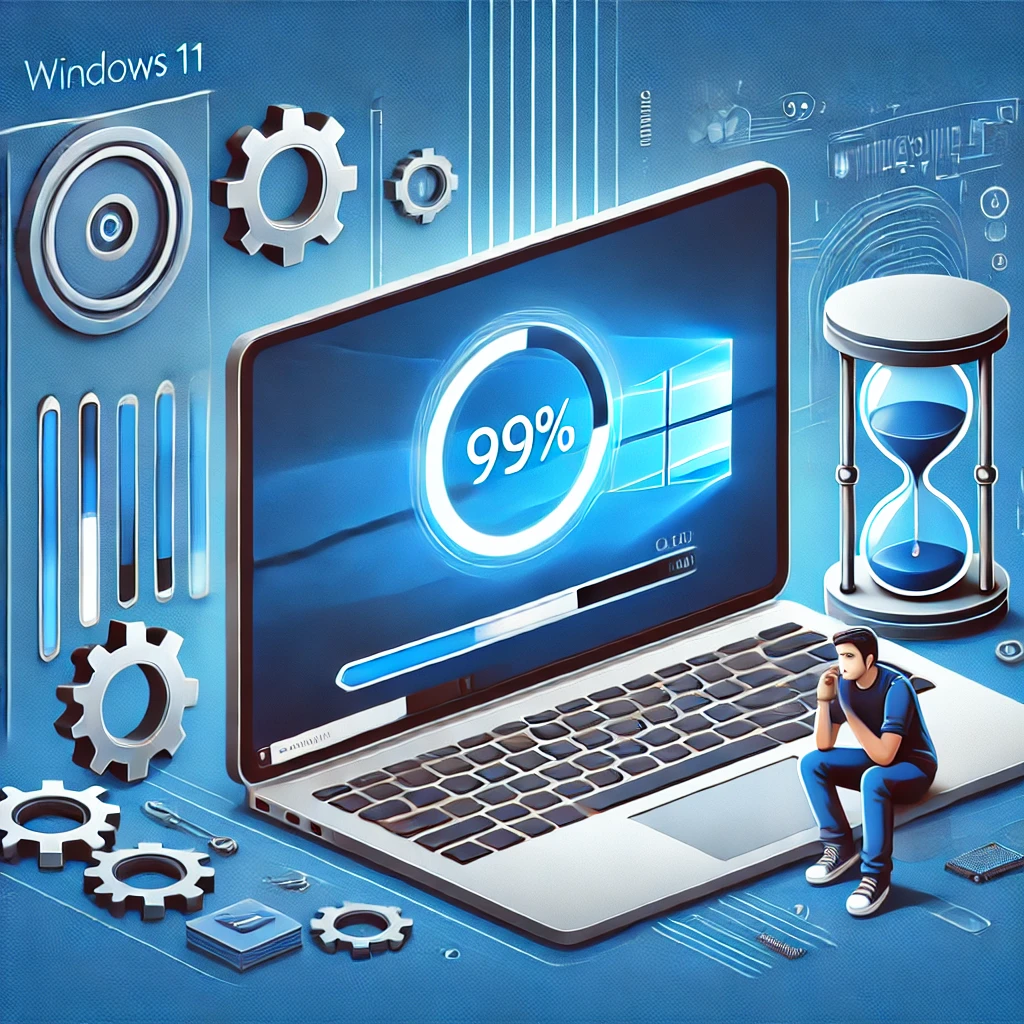
Why Your Windows 11 PC Is Slowing Down (And How to Fix It)
Has your once-speedy Windows 11 PC started to crawl like a snail in rush hour traffic? You're not alone. Many users experience slowdowns over time, but the good news is that you don’t have to live with a sluggish machine. In this guide, we’ll explore why your Windows 11 PC is slowing down and, more importantly, how to fix it!
Common Reasons Why Windows 11 PCs Slow Down
1. Too Many Startup Programs
Every time you boot up your PC, certain programs launch automatically, hogging system resources before you even open an app. If your Windows 11 device is taking forever to start, unnecessary startup programs might be to blame.
Solution: Disable Unnecessary Startup Apps
Hit Ctrl + Shift + Esc to open Task Manager, go to the Startup tab, and disable the programs you don’t need at boot.
2. Low Storage Space
Running out of disk space? Your PC needs breathing room to function properly. A nearly full hard drive can cause major slowdowns.
Solution: Free Up Disk Space
Use Windows 11’s built-in Storage Sense to remove junk files, delete old downloads, and clear your recycle bin.
3. Fragmented or Slow Storage Drive
Traditional HDDs can slow down over time due to fragmentation. If you're still using an HDD instead of an SSD, you might be bottlenecking your system’s performance.
Solution: Upgrade to an SSD
Want a night-and-day difference in speed? Switching from an HDD to an SSD is one of the most effective upgrades you can make.
4. Outdated Drivers
Drivers act as translators between your hardware and software. If they’re outdated, your PC could struggle to perform efficiently.
Solution: Update Your Drivers
Go to Device Manager and update your drivers manually, or use Windows Update to install the latest versions.
How to Speed Up Your Windows 11 PC
1. Optimize Background Apps
Too many background apps? Your RAM and CPU might be struggling. Check which apps are running in the background and close unnecessary ones.
2. Adjust Power Settings
Windows 11 has multiple power plans, and if you’re on "Power Saver" mode, your PC is deliberately slowing down to conserve energy.
Solution: Switch to High-Performance Mode
Go to Settings > System > Power & battery and select "Best performance" for a speed boost.
3. Clear Your Browser Cache
If browsing the web feels sluggish, your browser cache might be the culprit. Clearing cache can instantly improve your experience.
Solution: Delete Cache & Cookies
For Chrome, press Ctrl + Shift + Delete and clear your browsing data.
Advanced Fixes for Power Users
1. Upgrade Your RAM
Running resource-intensive programs like top free video editing software in 2025? Consider upgrading your RAM for a smoother experience.
2. Tweak Virtual Memory
If your PC is running low on RAM, Windows 11 will use virtual memory. Adjusting this can help performance.
How to Optimize Virtual Memory
Go to Advanced system settings > Performance Settings and increase your paging file size.
3. Scan for Malware & Bloatware
Some background programs might not just be slowing you down—they could be malware or unnecessary bloatware.
Solution: Use Windows Defender
Run a full scan with Windows Security to detect and remove threats.
Final Thoughts
Windows 11 is packed with amazing features, but over time, slowdowns are inevitable if you don’t maintain your system. By following these tips, you can breathe new life into your PC and enjoy faster performance without unnecessary frustration. So go ahead, give your computer the tune-up it deserves!
FAQs
1. How often should I clean my disk for better performance?
At least once a month! Use Storage Sense to automate the process.
2. Is an SSD really better than an HDD for speed?
Absolutely! SSD vs. HDD: Which is better for you?—SSDs offer faster speeds, better reliability, and lower energy consumption.
3. Can AI tools help optimize my Windows 11 PC?
Yes! Some AI tools to boost productivity can monitor and optimize system performance automatically.
4. What’s the best free antivirus to protect my Windows 11 PC?
Windows Defender is solid, but for extra protection, consider Bitdefender or Avast.
5. Will upgrading to Windows 11 slow down my PC?
Not necessarily, but if your hardware is old, performance might take a hit. Upgrading RAM or switching to an SSD can help.